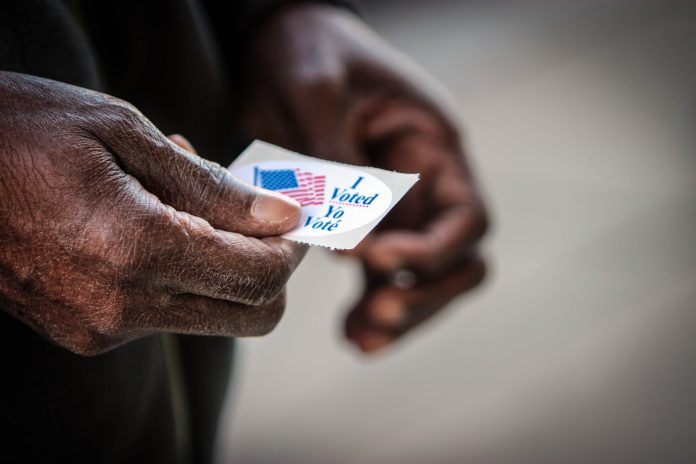WASHINGTON, DC, April 25, 2023 – The Sentencing Project released a new report, “Increasing Public Safety by Restoring Voting Rights,” which finds that restoring voting rights for people with felony convictions can improve community safety. The report highlights that having the right to vote or the act of voting is related to reduced recidivism for Americans–who have been involved with the criminal legal system. Voting rights restoration also influences justice-impacted individuals’ perception of themselves as community members and of their ability to remain crime-free.
“People with felony convictions work, pay taxes, and raise families, but they do not have a voice in the laws and policies that govern their lives,” said Kristen Budd, a Research Analyst at The Sentencing Project and lead author on the report. “Lawmakers should follow the data and dismantle the laws and policies that exclude justice-impacted people from participating in our democracy.”
The report features a number of studies that underscore the beneficial effects of restoring voting rights for all Americans who have been convicted of a felony. It finds that:
Having the right to vote and the act of voting are related to increased public safety. People whose voting rights were restored post-incarceration had lower recidivism rates than their counterparts in states that continued to restrict voting rights post-incarceration. One study found that Minnesotans with a criminal history were significantly less likely to be re-arrested if they voted in the 1996 presidential election.
Having the right to vote shapes community re-entry experiences and is linked to intentions to remain crime-free. In multiple studies, justice-impacted individuals were interviewed about losing their right to vote due to their felony convictions. They believed having the right to vote was a fundamental component of developing a pro-social identity. Being restricted from voting made justice-impacted individuals feel like an outsiders-an impediment to reintegration. Many interviewees also directly connected their right to vote to their intention and perceived ability to remain law-abiding.
Excluding people from voting based on their conviction offense does not advance public safety. Some states exclude people with certain conviction offenses, like murder and crimes of a sexual nature, from becoming voters by severely restricting their pathways to voter restoration. Research shows that banning people from voting ostracizes them, is psychologically harmful, and negatively affects their perception to remain law-abiding. These offense-based voting bans do nothing to make us safer.
This report comes as some states are moving to protect and expand the vote for justice-impacted individuals. In 2023, Minnesota and New Mexico restored the right to vote for over 57,000 justice-impacted persons who are on felony probation or parole. In 2020, Washington, DC, became the third jurisdiction in the continental United States where individuals incarcerated for a felony conviction can vote.
Nevertheless, felony voting bans remain a major problem in America. As the prison population has risen more than 500% since 1973, so has the number of people excluded from casting their ballot. This disproportionately affects Black Americans – one in 19 voting-eligible Black Americans cannot vote, a rate 3.5 times that of non-African Americans.
The Sentencing Project advocates for effective and humane responses to crime that minimize imprisonment and criminalization of youth and adults by promoting racial, ethnic, economic, and gender justice. www.sentencingproject.org


